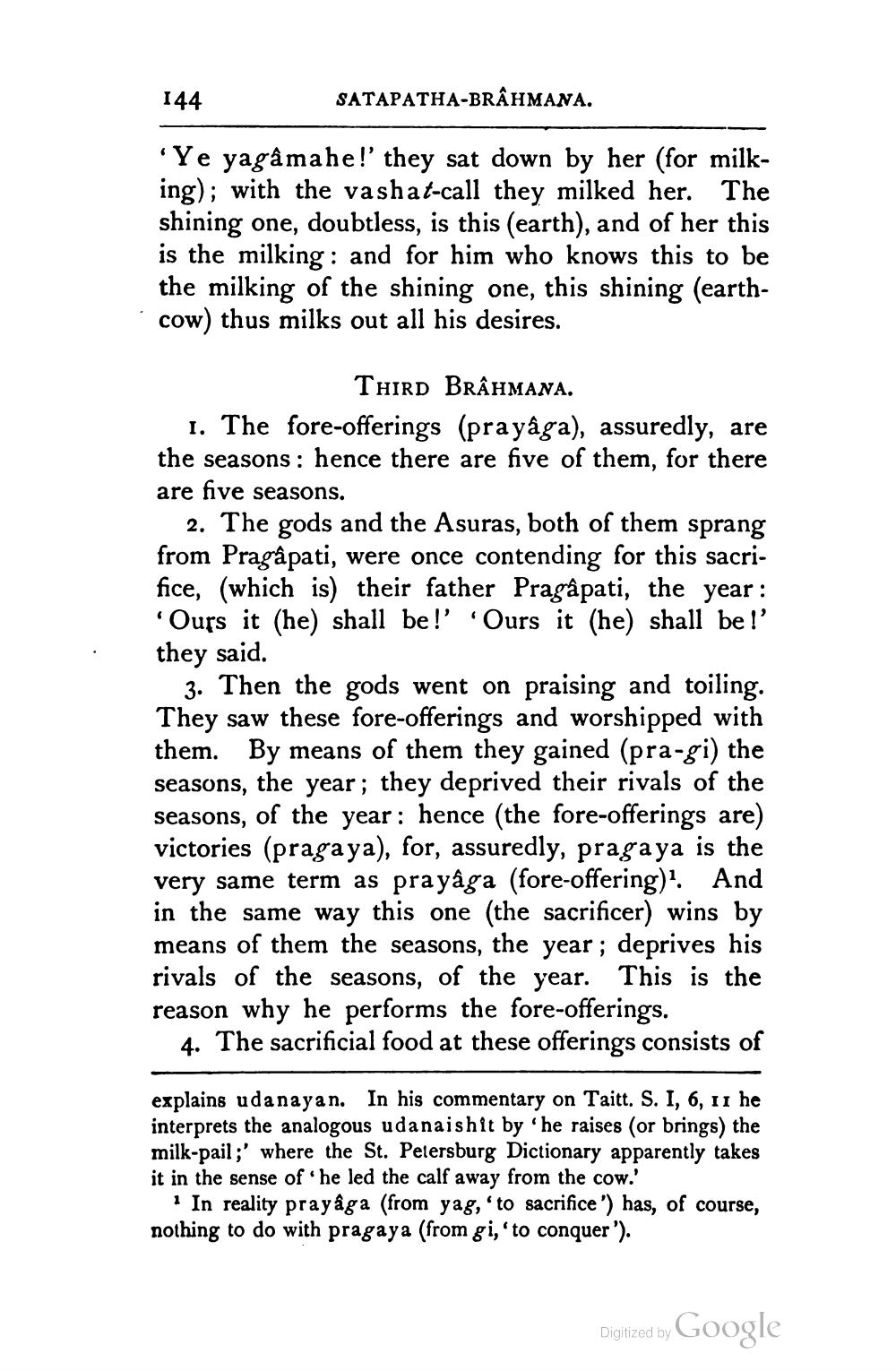________________
144
SATAPATHA-BRAHMANA.
Ye yagâmahe!' they sat down by her (for milking); with the vashat-call they milked her. The shining one, doubtless, is this (earth), and of her this is the milking : and for him who knows this to be the milking of the shining one, this shining (earthcow) thus milks out all his desires.
Third BRÂHMANA. 1. The fore-offerings (prayâga), assuredly, are the seasons: hence there are five of them, for there are five seasons.
2. The gods and the Asuras, both of them sprang from Pragâpati, were once contending for this sacrifice, (which is) their father Pragâpati, the year : 'Ours it (he) shall be!' 'Ours it (he) shall be!' they said.
3. Then the gods went on praising and toiling. They saw these fore-offerings and worshipped with them. By means of them they gained (pra-gi) the seasons, the year; they deprived their rivals of the seasons, of the year: hence (the fore-offerings are) victories (pragaya), for, assuredly, pragaya is the very same term as prayâga (fore-offering)". And in the same way this one (the sacrificer) wins by means of them the seasons, the year ; deprives his rivals of the seasons, of the year. This is the reason why he performs the fore-offerings.
4. The sacrificial food at these offerings consists of
explains udanayan. In his commentary on Taitt. S. I, 6, 11 he interprets the analogous udanaishit by 'he raises (or brings) the milk-pail;' where the St. Petersburg Dictionary apparently takes it in the sense of he led the calf away from the cow.'
"In reality prayaga (from yag, 'to sacrifice') has, of course, nothing to do with pragaya (from gi,'to conquer ').
Digitized by Google




